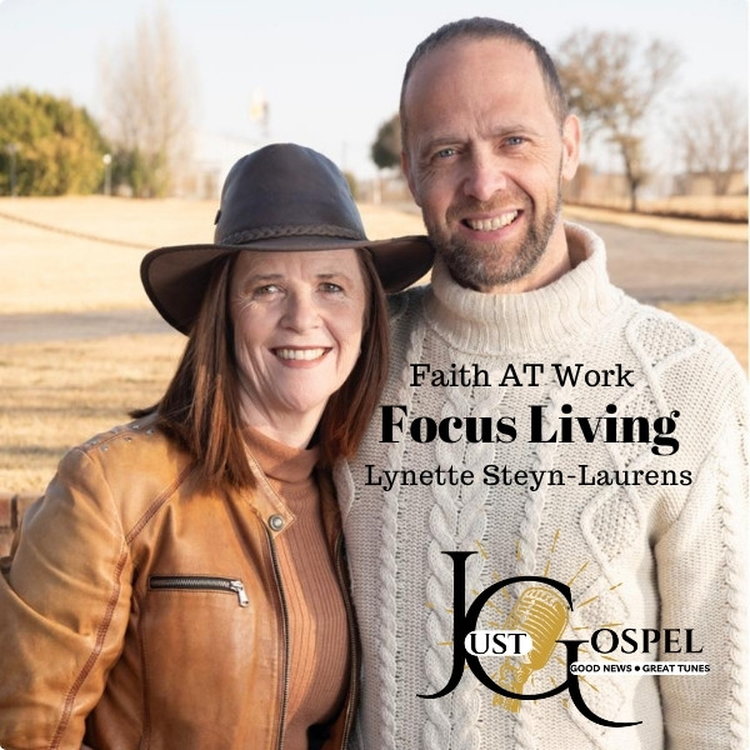
FOCUS LIVING: Divine Motherhood: Understanding God's Trust in Mothers
Loading player...
Core Revelation: Motherhood represents God's ultimate trust - He chose mothers to raise His most precious creation (humans made in His image).
The Divine Privilege:
God could have created all humans directly but chose the miraculous process of life forming in mothers' wombs. This represents incredible divine trust - mothers are appointed to raise and nurture God's most treasured creation. Lynette reflects on being entrusted with seven children (four biological, two stepchildren, one chosen), recognizing this as evidence of being "very special" in God's eyes.
Biblical Motherhood Principles:
1. Nurturing and Comfort:
Mothers reflect God's comforting presence. Children learn through "copy and paste" - they do what they see, not just what they're told. Parents must demonstrate nurturing practically.
2. Life-Giving Responsibility:
Children belong to God, not parents. Mothers are caretakers preparing children for independent lives serving God. This preparation starts early - teaching two-year-olds to dress themselves prepares them for adult self-sufficiency.
3. Teaching Wisdom:
Following her husband's unexpected death when children were ages 10-18, Lynette realized the urgency of equipping children for life without parents. She taught practical skills: budgeting, daily routines, proper dressing, combating depression, managing emotions.
4. Modeling God's Love:
Fathers represent "God with skin on" while mothers enhance this love. Parents must practically demonstrate unconditional love - not just tell children to "love your neighbor" while cursing at bad drivers. Children copy what they observe.
Biblical Examples:
Mary (Mother of Jesus):
Faced incredible social stigma - pregnancy without marriage was scandalous. Had to explain miraculous conception to parents and fiancé (who planned to leave). Demonstrated faith by trusting God's plan despite societal consequences.
Jochebed (Mother of Moses):
Hid baby Moses for three months during Pharaoh's decree killing Hebrew boys. Put him in basket on crocodile-infested Nile River, requiring supernatural faith. God orchestrated Pharaoh's daughter finding Moses and hiring his own mother as wet nurse.
Teaching Honor and Respect:
Deuteronomy 5:16 commands honoring parents, but children must learn this behavior. If parents disrespect each other, children copy this pattern. Respect must be modeled between all family members.
Key Principles:
Children are gifts from God (Psalm 127)
Motherhood is ordained by God - every mother is divinely appointed
Parents need accountability through Scripture and Christian community
Children should see parents using Bible as life manual
Proverbs 22:6 - "Train up a child in the way he should go"
Practical Applications:
Model respect in all family relationships
Demonstrate faith through daily Bible study together
Refer to Scripture when making parenting decisions
Show children that parents are also accountable to God's word
Prepare children for independence from early age
Motherhood Characteristics:
Blessing (Psalm 127)
Ordained by God (divine appointment)
Full of Hope (Proverbs 22:6)
Full of Joy (countless precious moments)
A Calling (requires readiness and maturity)
Worthy of Honor (Ephesians 6:1-3 promises long life for those who honor parents)
Preview: Next week's discussion will focus on structuring family life to teach children God's ways, Bible study methods for families, and raising children who refer back to Christ as adults.
Takeaway: Motherhood isn't just biological function but divine partnership. God trusts mothers with His most precious creation, making every mother "very special" in His eyes and responsible for raising the next generation of His kingdom.
The Divine Privilege:
God could have created all humans directly but chose the miraculous process of life forming in mothers' wombs. This represents incredible divine trust - mothers are appointed to raise and nurture God's most treasured creation. Lynette reflects on being entrusted with seven children (four biological, two stepchildren, one chosen), recognizing this as evidence of being "very special" in God's eyes.
Biblical Motherhood Principles:
1. Nurturing and Comfort:
Mothers reflect God's comforting presence. Children learn through "copy and paste" - they do what they see, not just what they're told. Parents must demonstrate nurturing practically.
2. Life-Giving Responsibility:
Children belong to God, not parents. Mothers are caretakers preparing children for independent lives serving God. This preparation starts early - teaching two-year-olds to dress themselves prepares them for adult self-sufficiency.
3. Teaching Wisdom:
Following her husband's unexpected death when children were ages 10-18, Lynette realized the urgency of equipping children for life without parents. She taught practical skills: budgeting, daily routines, proper dressing, combating depression, managing emotions.
4. Modeling God's Love:
Fathers represent "God with skin on" while mothers enhance this love. Parents must practically demonstrate unconditional love - not just tell children to "love your neighbor" while cursing at bad drivers. Children copy what they observe.
Biblical Examples:
Mary (Mother of Jesus):
Faced incredible social stigma - pregnancy without marriage was scandalous. Had to explain miraculous conception to parents and fiancé (who planned to leave). Demonstrated faith by trusting God's plan despite societal consequences.
Jochebed (Mother of Moses):
Hid baby Moses for three months during Pharaoh's decree killing Hebrew boys. Put him in basket on crocodile-infested Nile River, requiring supernatural faith. God orchestrated Pharaoh's daughter finding Moses and hiring his own mother as wet nurse.
Teaching Honor and Respect:
Deuteronomy 5:16 commands honoring parents, but children must learn this behavior. If parents disrespect each other, children copy this pattern. Respect must be modeled between all family members.
Key Principles:
Children are gifts from God (Psalm 127)
Motherhood is ordained by God - every mother is divinely appointed
Parents need accountability through Scripture and Christian community
Children should see parents using Bible as life manual
Proverbs 22:6 - "Train up a child in the way he should go"
Practical Applications:
Model respect in all family relationships
Demonstrate faith through daily Bible study together
Refer to Scripture when making parenting decisions
Show children that parents are also accountable to God's word
Prepare children for independence from early age
Motherhood Characteristics:
Blessing (Psalm 127)
Ordained by God (divine appointment)
Full of Hope (Proverbs 22:6)
Full of Joy (countless precious moments)
A Calling (requires readiness and maturity)
Worthy of Honor (Ephesians 6:1-3 promises long life for those who honor parents)
Preview: Next week's discussion will focus on structuring family life to teach children God's ways, Bible study methods for families, and raising children who refer back to Christ as adults.
Takeaway: Motherhood isn't just biological function but divine partnership. God trusts mothers with His most precious creation, making every mother "very special" in His eyes and responsible for raising the next generation of His kingdom.



